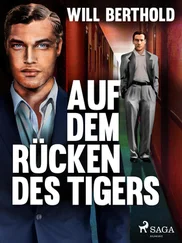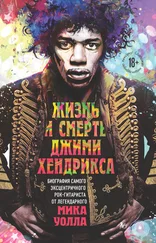Мик Херрон - Real Tigers
Здесь есть возможность читать онлайн «Мик Херрон - Real Tigers» весь текст электронной книги совершенно бесплатно (целиком полную версию без сокращений). В некоторых случаях можно слушать аудио, скачать через торрент в формате fb2 и присутствует краткое содержание. Год выпуска: 2015, Издательство: Soho Press, Жанр: Старинная литература, на английском языке. Описание произведения, (предисловие) а так же отзывы посетителей доступны на портале библиотеки ЛибКат.
- Название:Real Tigers
- Автор:
- Издательство:Soho Press
- Жанр:
- Год:2015
- ISBN:нет данных
- Рейтинг книги:4.5 / 5. Голосов: 2
-
Избранное:Добавить в избранное
- Отзывы:
-
Ваша оценка:
- 100
- 1
- 2
- 3
- 4
- 5
Real Tigers: краткое содержание, описание и аннотация
Предлагаем к чтению аннотацию, описание, краткое содержание или предисловие (зависит от того, что написал сам автор книги «Real Tigers»). Если вы не нашли необходимую информацию о книге — напишите в комментариях, мы постараемся отыскать её.
Real Tigers — читать онлайн бесплатно полную книгу (весь текст) целиком
Ниже представлен текст книги, разбитый по страницам. Система сохранения места последней прочитанной страницы, позволяет с удобством читать онлайн бесплатно книгу «Real Tigers», без необходимости каждый раз заново искать на чём Вы остановились. Поставьте закладку, и сможете в любой момент перейти на страницу, на которой закончили чтение.
Интервал:
Закладка:
“I’ll pull out soon. Spoken to the . . . boss?”
Donovan said, “He’d like you to put a scare into the lady.”
“Put a scare into her.”
“His exact words. ‘No harm in giving her a little scare.’”
Traynor said, “Well, he’s in charge.”
“Where’s the kid?”
The kid, whom Catherine had dubbed “Bailey” for some reason.
“Out front. Just in case.”
“He’s a tryer, isn’t he?”
“Doesn’t hurt to stay alert,” Traynor recited. All those hot places, all those pulverised walls, and he still kept an eye out for the newbies. Of course, he hadn’t spent five years counting the bricks in a series of small rooms. “He’s a good kid.”
“Like his sister,” Donovan said.
“Yeah. Like his sister.”
He ended the call and wound the windows down again. What came blasting into the cab was all petrol and scorched rubber, but anything that didn’t taste of prison smelt like freedom. He glanced at his watch. Twenty minutes before meeting Monteith: a car park off the Euston Road. He’d make it with time to spare.
A lot could go wrong, but it wouldn’t be this bit.
Some liftsdescended further than River wanted to go. This one didn’t—it was standard, staff-for-the-use-of—but there were others which required top clearance and disappeared deep into London’s bowels, offering access to secure crisis-management facilities, and even a rumoured top-secret underground transport system; a rumour River had regarded with scepticism until he’d learned that it had been officially denied. That there were other areas where deniable interrogations took place, he’d taken as read. Such were the foundations on which security is built.
But he was heading towards the level where the records rooms were.
He’d rarely had occasion to visit these in his time at Regent’s Park, but knew from conversations with his grandfather, the O.B., that they’d long been in danger of reaching capacity, containing as they did hundreds of yards, miles even, of hard-copy information: reports and records, personnel files, transcripts and minutes of varying levels of sensitivity. River had affected surprise that physical documents remained the mainstay of the Park’s archives, but only to give the O.B. the opportunity of riding one of his favourite hobby horses.
“Oh,” the Old Bastard, a purely affectionate monicker, said, “they had to rethink a lot of those early storage protocols, once they realised computers were like bank vaults. Nice and secure, safe as houses, right up to the moment someone blows the doors off and walks away with the loot.”
On the most recent occasion on which they’d had this conversation, it had been late evening: rain pattering on the windows, brandy splashing with almost as much regularity into their glasses.
“Because computers talk to each other, River—that’s what they’re for. Your generation can’t boil an egg without going online, you rely on them for everything, but you tend to overlook their major function. Which is that they store information, but only in order to divulge it.”
Which River had known, of course. Knew that was why the Queens of the Database worked on air-gapped systems, their USB ports gummed up to prevent flash drives being inserted. The Queens had to skip from one row of computers to another to go online—internet and internot being the waggish coinage. Electronic poaching had replaced the nuclear threat as the Big Fear. The Service liked to steal, but it hated getting robbed.
Give a born thief like Roderick Ho five minutes with an internet connection, River thought, and he’d bring back the PM’s vetting history, if it was out there to be snaffled.
Which was why the PM’s vetting history wasn’t held online, but stored in the Park’s personnel archive, on the level River was heading to now.
It wasdefinitely a double-decker bus. One of the old-fashioned type, with a deck you could jump onto as it pulled away, if you didn’t mind being shouted at by the conductor. It was open topped, its upper deck shrouded in canvas, and was parked head-on to the house, so Catherine could see its destination window, which read hop aboard! There were no other vehicles in sight. She’d been right about the outhouses, though; three smaller, bluntly functional buildings, flat-sided, windowless, with sloping roofs. Garages or storage units. Nothing looked currently in use. It was as if her captors had stumbled on this place as a vacant possession, and taken advantage. Except that stumbling on things didn’t fit into Sean Donovan’s worldview. Any mission he was on would be double-plotted; every detail stress-tested for the unexpected, the potential loose screw.
A sudden bitter thought flared. A loose screw —that’s all I was to him then.
So what am I now?
She had been awake for hours; had barely slept. Too much confusion flying around her mind, and this question the biggest of them all: What am I now? A figure out of Donovan’s past, snatched into his present—why? She couldn’t pretend it was because of anything she meant to him; it had to be because of what she did. And what she did was nothing much; was only tangentially Secret Service. What she did was Jackson Lamb’s paper-shuffling; organising the slow horses’ ditchwater-dull number-crunching into what resembled reports, which she then parcelled off to Regent’s Park so they could be officially ignored. If anything they’d done at Slough House lately warranted this kind of excitement, it had passed her by . . . Hours ago, lying on the narrow bed thinking all this, she’d heard the front door closing, and had reached the window in time to see Donovan climbing into the van they’d fetched her here in. He’d driven down the track, turned into the lane, and vanished from sight.
Whatever was happening, there was no stopping it now.
The lighton this corridor, three levels below where he’d been talking to Diana Taverner, was blue-tinted, as if replicating the effect of dusk in the outside world. It was mildly disorienting, stepping out of the lift: not only the light, but the blank white walls and tiled white floor. Below the surface, everything changed. Wood panelling and marbled surfaces were nowhere to be seen.
Behind him the lift door closed, and machinery murmured.
Twenty-eight minutes.
So far, no alarms. River had left his pass in the lift, in case it was chipped so Security could track him. He hoped they’d been distracted by the pair of armed terrorists down the road, but it wouldn’t take long to shoot them and get back to work. And he had twenty-eight minutes, or twenty-seven, to retrieve the file the man in the suit wanted, so his thugs wouldn’t vent their poor impulse control on Catherine.
“. . . Break into the Park? Seriously?”
“Do I look like I’m joking?”
The thing was, he almost had. It was that supercilious smirk he’d worn, the upper-class sneer.
“I’ll keep it simple. You don’t even have to steal it. Pictures will do fine.”
“They don’t let you just walk in,” River had said, stupidly.
“We’d hardly have needed to take your colleague if they did.”
Through an open door down the corridor, a figure appeared.
She was quite round, with a messy cap of hair, and her face was a thick white mask of powder; a childish attempt to make up as a clown, was River’s first thought. But there was nothing childish about her eyes, which were steely-grey as her hair; and nothing of the toy about her wheelchair, which was cherry-coloured, with thick wheels, and looked capable of powering itself over or through any manner of obstacle: a closed door, an enemy trench, River Cartwright.
And this was Molly Doran, of whom he’d heard much, some of it good.
Читать дальшеИнтервал:
Закладка:
Похожие книги на «Real Tigers»
Представляем Вашему вниманию похожие книги на «Real Tigers» списком для выбора. Мы отобрали схожую по названию и смыслу литературу в надежде предоставить читателям больше вариантов отыскать новые, интересные, ещё непрочитанные произведения.
Обсуждение, отзывы о книге «Real Tigers» и просто собственные мнения читателей. Оставьте ваши комментарии, напишите, что Вы думаете о произведении, его смысле или главных героях. Укажите что конкретно понравилось, а что нет, и почему Вы так считаете.






![Мик Уолл - Жизнь и смерть Джими Хендрикса [Биография самого эксцентричного рок-гитариста от легендарного Мика Уолла] [litres]](/books/387909/mik-uoll-zhizn-i-smert-dzhimi-hendriksa-biografiya-samogo-ekscentrichnogo-rok-gitarista-ot-legendarnogo-mika-uolla-litres-thumb.webp)





